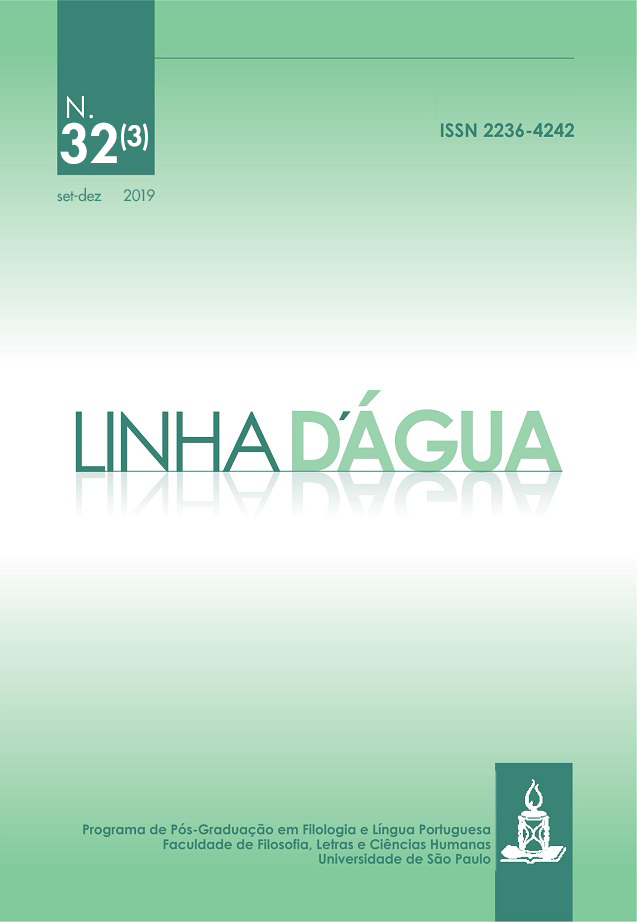The History of 'Pétala'
Etymology of a Scientific Term
DOI:
https://doi.org/10.11606/issn.2236-4242.v32i3p159-176Keywords:
Etymology of ‘Pétala’, Historical Linguistics, Diachronic Lexicology, Diachronic Terminology, EtymologyAbstract
This study describes the diachrony of pétala (‘petal’), a term of Botany that presents two competing forms in Portuguese: pétala (feminine) and pétalo (masculine). Starting from some theoretical and methodological concepts in Etymology, we initially identified the cognate forms in French, Spanish and Italian; then we sought to find the first dates (the so-called terminus a quo) of the Portuguese forms. We observed that the dates for the Portuguese language are later than those identified for French and Italian, languages in which the same term also presents gender oscillation. Four hypotheses are then considered for the existence of both forms in Portuguese: (1) the feminine as originating from the Latin neuter plural; (2) the influence of the feminine gender of the word folha ‘leaf’; (3) the influence of the adjective apétalo ‘without petals’ in the feminine form; and (4) the influence of the other languages in which there is the same gender oscillation. The conclusion points out that the phenomenon must be explained taking into account the existence of multiple causes, which is a common type of explanation in Etymology.
Downloads
Downloads
Published
Issue
Section
License
Copyright (c) 2019 Linha D'Água

This work is licensed under a Creative Commons Attribution-NonCommercial 4.0 International License.
The Editorial Board authorizes free access to and distribution of published contentes, provided that the source is cited, that is, granding credit to the authors and Linha D'Água and preserving the full text. The author is allowed to place the final version (postprint / editor’s PDF) in an institutional/thematic repositor or personal page (site, blog), immediately after publication, provided that it is available for open access and comes without any embargo period. Full reference should be made to the first publication in Linha D'Água. Access to the paper should at least be aligned with the access the journal offers.
As a legal entity, the University of São Paulo at Ribeirão Preto School of Philosophy, Sciences and Languages owns and holds the copyright deriving from the publication. To use the papers, Paidéia adopts the Creative Commons Licence, CC BY-NC non-commercial attribution. This licence permits access, download, print, share, reuse and distribution of papers, provided that this is for non-commercial use and that the source is cited, giving due authorship credit to Linha D'Água. In these cases, neither authors nor editors need any permission.
Partial reproduction of other publications
Citations of more than 500 words, reproductions of one or more figures, tables or other illustrions should be accompanied by written permission from the copyright owner of the original work with a view to reproduction in Linha D'Água. This permission has to be addressed to the author of the submitted manuscript. Secondarily obtained rights will not be transferred under any circumstance.










